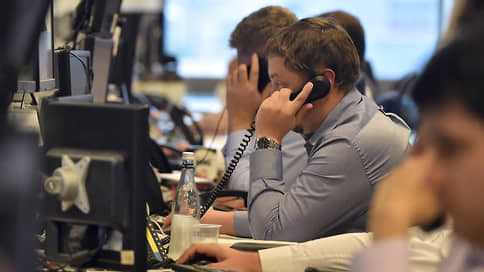They sell, and the ruble grows stronger – Newspaper Kommersant No. 177 (7378) of 09/24/2022
[ad_1]

The financial market ended the week with a fall. The Moscow Exchange Index on Friday rolled back below 2100 points, having lost more than 14% in seven days. The continued strengthening of the ruble to levels below 58 rubles/$ also does not indicate investors’ optimism, as foreign currency sales took place not only against the backdrop of imminent tax payments, but also on fears of new sanctions against Russian financial institutions.
The finale of the week on the Russian stock market turned out to be a failure. The Moscow Exchange Index on Friday, September 23, fell below the level of 2100 points. During trading, it fell to the level of 2071.37 points, which is 5.5% lower than Thursday’s close. As a result of the day, it stopped at 2089.87 points, which is 4.6% lower than Thursday’s close. The index fell harder on Tuesday, when it lost over 8.8%. At the end of the week, the index lost over 14%, this is the strongest drop since the end of February.
The main reason for the collapse remained the same – the growth of geopolitical risks due to referendums in the territories of the NWO and partial mobilization in the Russian Federation.
According to Mikhail Bespalov, an analyst at KSP Capital Asset Management, private investors fear that new sanctions will be introduced in response, which may affect both Russian exporters and financial sector organizations.
Do not add optimism to investors and news about the growth of taxation of companies.
On Tuesday, it became known that the government intends to increase fees from commodity exporters by 1.4 trillion rubles. in 2023 (ref. “Kommersant” dated September 20). On Friday, Finance Minister Anton Siluanov announced that the draft federal budget for 2023-2025 provides for the withdrawal of excess profits from fertilizer producers and liquefied natural gas. The project also provides for an increase in export duties and a reduction in the oil and gas deficit. All this news caused a wave of sales of shares on the stock exchange. “Market participants with a short investment horizon, unable to endure the growth of uncertainty, are selling, market participants are buying with a horizon of several years, waiting for the recovery of financial results, the return of dividends and the normalization of the valuation,” says Vitaly Isakov, Investment Director of Otkritie Management Company.
Additional pressure on the market is exerted by the rapid growth of the Russian currency, which negatively affects the financial performance of export-oriented companies
On Friday, the dollar rate on the Moscow Exchange fell to its lowest level since July 22, to 56.65 rubles/$, which is almost 1.2 rubles. lower than Thursday’s close. At the end of the day, the rate stopped at the level of 57.92 rubles/$, having lost 2.35 rubles since the beginning of the week. The euro and yuan exchange rates for the first time since the beginning of July fell below the levels of 55 rubles/€ and 8 rubles/CNY.
The strong position of the ruble is supported by the increased supply of foreign currency against the backdrop of preparing companies to pay taxes. According to Sovcombank, September taxes will amount to 2.4 trillion rubles, which is about 14% more than in August. As a result, trading volumes increased sharply on the exchange, with the yuan trading volume on Friday reaching 106.8 billion rubles, which is more than double the level of the previous week. According to Sovcombank chief analyst Mikhail Vasiliev, many Russian companies have transferred a significant part of their settlements from the dollar to the yuan, so during the tax period, exporters are already selling yuan instead of dollars.
The message about the postponement of the launch of the budget rule to 2025 plays in favor of a strong ruble. According to Mikhail Vasiliev, market participants expected the ruble to weaken soon due to the return of foreign currency purchases by the Finance Ministry to reserves under the updated budget rule. But the government on Thursday approved the draft budget for the next three years, and nothing was said about foreign exchange interventions. As a result, some investors assumed that the budget rule would not work soon, and began to close positions against the ruble, Mr. Vasiliev notes. In addition, according to Evgeny Loktyukhov, head of the economic and sectoral analysis department at PSB, “the prospect of imposing new sanctions against the financial sector by the West carries the risk of disrupting exchange trading and even greater difficulties when making payments in the currencies of unfriendly countries.” In particular, the introduction of new restrictions against the Moscow Exchange on Friday did not rule out the chairman of its supervisory board, Sergei Shvetsov.
[ad_2]
Source link





